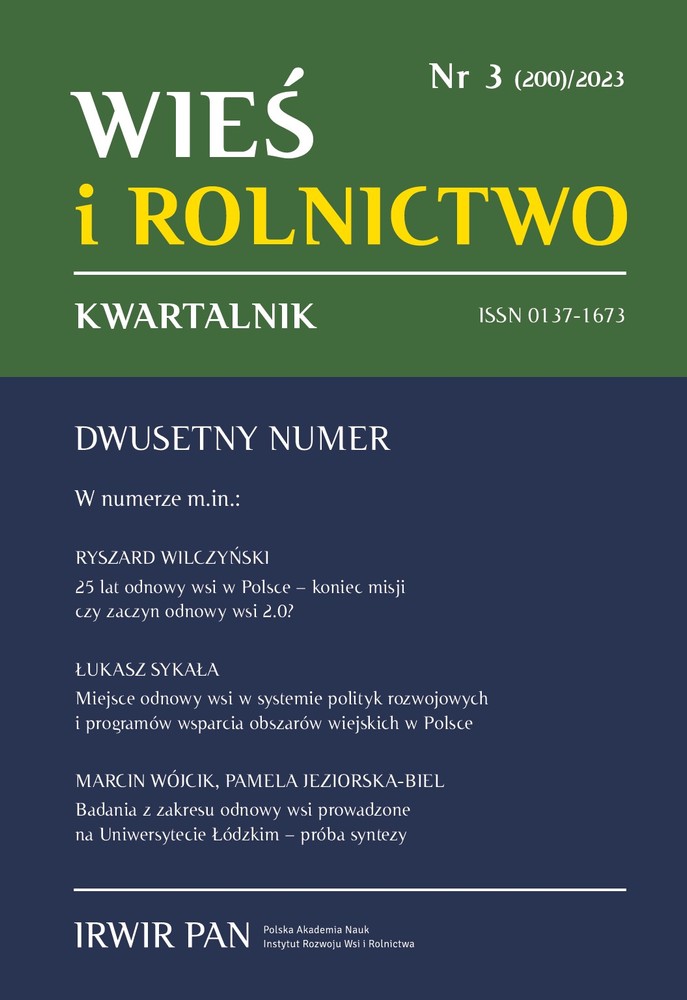25 lat odnowy wsi w Polsce – koniec misji czy
zaczyn odnowy wsi 2.0?
25 Years of Polish Rural Renewal: Completion of the Mission
or the Stirring of Rural Renewal 2.0?
Author(s): Ryszard WilczynskiSubject(s): Agriculture, Rural and urban sociology, ICT Information and Communications Technologies
Published by: Instytut Rozwoju Wsi i Rolnictwa Polskiej Akademii Nauk
Keywords: rural renewal; smart villages; rural development strategy; bottom-up development; internal development of the village; revitalisation; mobilisation of local communities;
Summary/Abstract: The Opole Rural Renewal Programme (Polish acronym: OPOW), inspiredby models from Austria and Germany, marked the beginning of the uptake of the rural renewalidea in Poland in 1997. The outcomes of the programme and the growing interest in it gaverise to the expectation that rural renewal would determine the perspective for the ruraldevelopment of Poland. The innovative idea, challenging simple modernisation/urbanisationof the rural, had a significant impact on rural transformation. The idea, framed by subsequentregional programmes, was a promising method of animating the processes of improvingthe general state of the countryside, in which the rural community was the driving force,while the effect was to overcome backwardness, improve living conditions, and at the sametime preserve the cultural heritage and strengthen the identity of the rural community.The 25th anniversary of OPOW in 2022, created an opportunity to present the circumstancesof emergence of the rural renewal in Poland (as a leading bottom-up approach), its strongimpact, and then a surprising decline. The article examines the systemic reasons whyrural renewal has become a niche approach. The failures and lack of know-how adequateto the changing situation (depopulation and ageing of rural communities) on the part ofthe national development policy were pointed out. Particularly fateful was the mistake of not integrating rural renewal into the rural development system and separating it fromactivities regulated by law under the term revitalisation. The aim of this work is to presentrural renewal as a still valid method of development and an opportunity to introduce a newquality to national development policy. Creating an appropriate legal and institutionalframework could constitute the beginning of a new digital stage of its impact, in a wayidentical to the smart villages concept.
Journal: Wieś i Rolnictwo
- Issue Year: 200/2023
- Issue No: 3
- Page Range: 35-71
- Page Count: 37
- Language: Polish

